The Summer Camp Daily Brief – October 14, 2025
- Matthew Kaufman

- Oct 14
- 5 min read
The Story Everyone's Talking About
A new Stanford study made headlines this week for something beautifully simple: a mother's voice can literally reshape her baby's brain. Researchers found that premature infants who regularly heard their mom's voice: live, not recorded: showed faster development in the brain's language centers. You can read the full study at the Stanford Medicine website.
Even though most of our campers are long past infancy, this discovery lands close to home. It's another reminder that real human connection still builds the architecture of growth. No AI narrator, podcast, or voice assistant can match the effect of a caring human voice saying, "I believe in you."
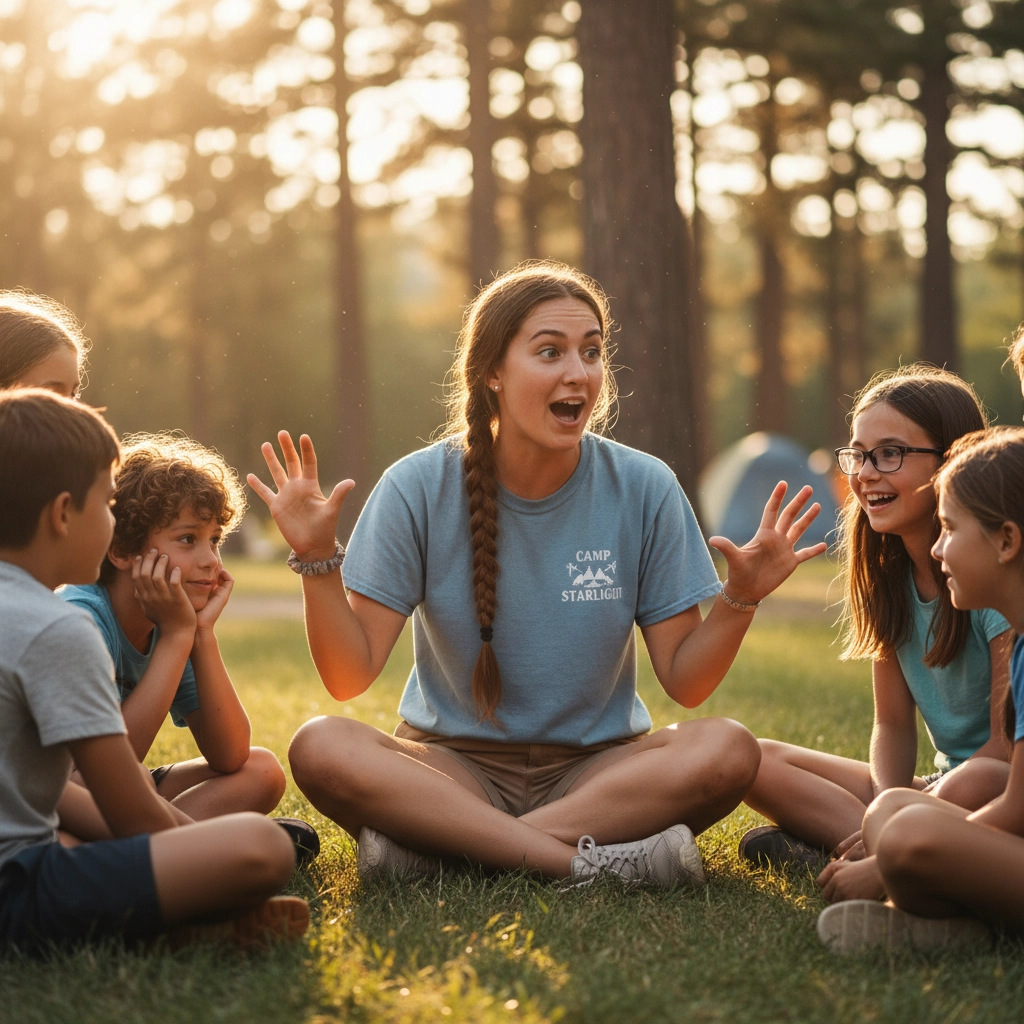
Why This Matters for Camp
Think about it: camp is one giant chorus of human voices. Morning announcements, chants in the dining hall, counselors telling bedtime stories: each one shapes emotional memory and communication skills.
That Stanford study is scientific proof of something every camp director has felt for years. Kids need to hear us, not just receive information. It's the tone, the warmth, the rhythm of belonging.
And here's where it connects to our core mission: when campers hear encouraging voices during problem-solving moments: "Try a different approach" or "What if you looked at it this way?": we're not just being supportive. We're literally wiring their brains for independent thinking.
As technology keeps inserting itself between kids and people, our voices become an even more valuable developmental tool. If your camp has moved some training or communication online, consider ways to bring the sound of staff voices back in: voice memos, video welcome messages, even quick audio reflections from counselors to campers.
What Else Is Happening in Child Development
Two other studies caught my attention this week, and both reinforce why camp's offline problem-solving approach is so crucial.
First, researchers at the University of Surrey found that poor sleep can make children's brains look "older" than their years. The MRI scans showed accelerated brain aging when kids averaged less than seven hours of sleep. You can dive into the research at ScienceDaily.
Second, a meta-review of AI use in classrooms (posted to arXiv) warns that constant AI assistance may actually weaken problem-solving confidence. Students begin doubting their own reasoning when they always have an algorithm standing by.
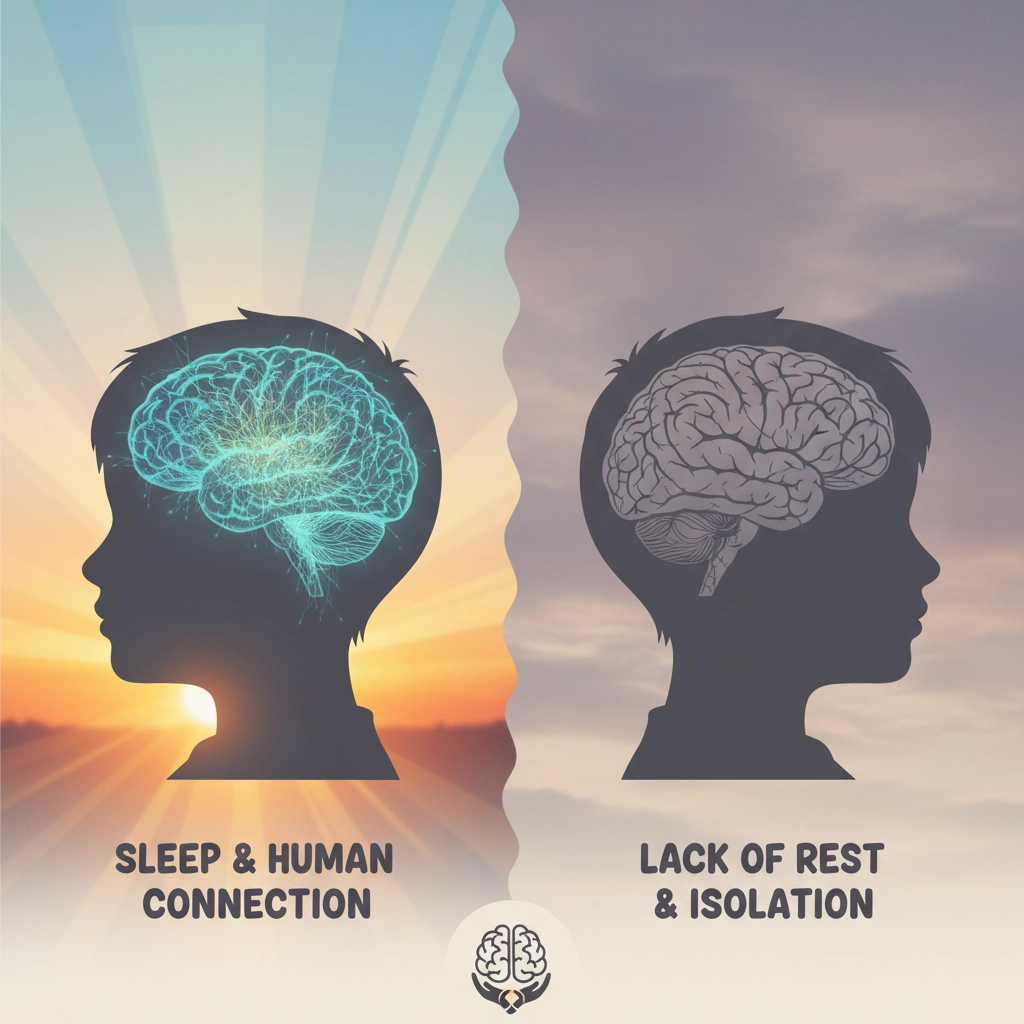
Both findings circle back to something we see every day at camp: kids need rest, human voices, and space to wrestle with problems on their own. That's how neural wiring for independence and confidence gets stronger.
When a camper figures out how to untangle a rope swing without immediately asking for help, or when they navigate a friendship conflict during free time, their brain is building the exact problem-solving pathways that make them successful later in life.
Turning the Research Into Camp Practice
Here's one small experiment you could try this week. During a free period or rainy-day block, run a "voice and silence challenge." Ask campers to solve a task: say, building a bridge out of sticks: without any verbal instructions. After they finish, have counselors talk them through what they observed: the strategies, the teamwork, the frustration.
Then flip it. Let the campers narrate their own process out loud while re-doing the same task. You'll likely see more collaboration and laughter the second time. The debrief practically runs itself: How did hearing each other change the outcome?
This simple activity builds multiple problem-solving skills at once:
Time management: They have to plan their approach within the given timeframe
Creativity: Finding new solutions when the first attempt doesn't work
Interpersonal skills: Learning to communicate ideas and work as a team
You could also try a lighter staff-training version. Play with AI tools like ChatGPT for ten minutes to brainstorm an evening program, then put the phones away and design the same thing face-to-face. Which version feels more creative? More human? Discuss it over coffee: it's a great entry point to digital-wellness training.
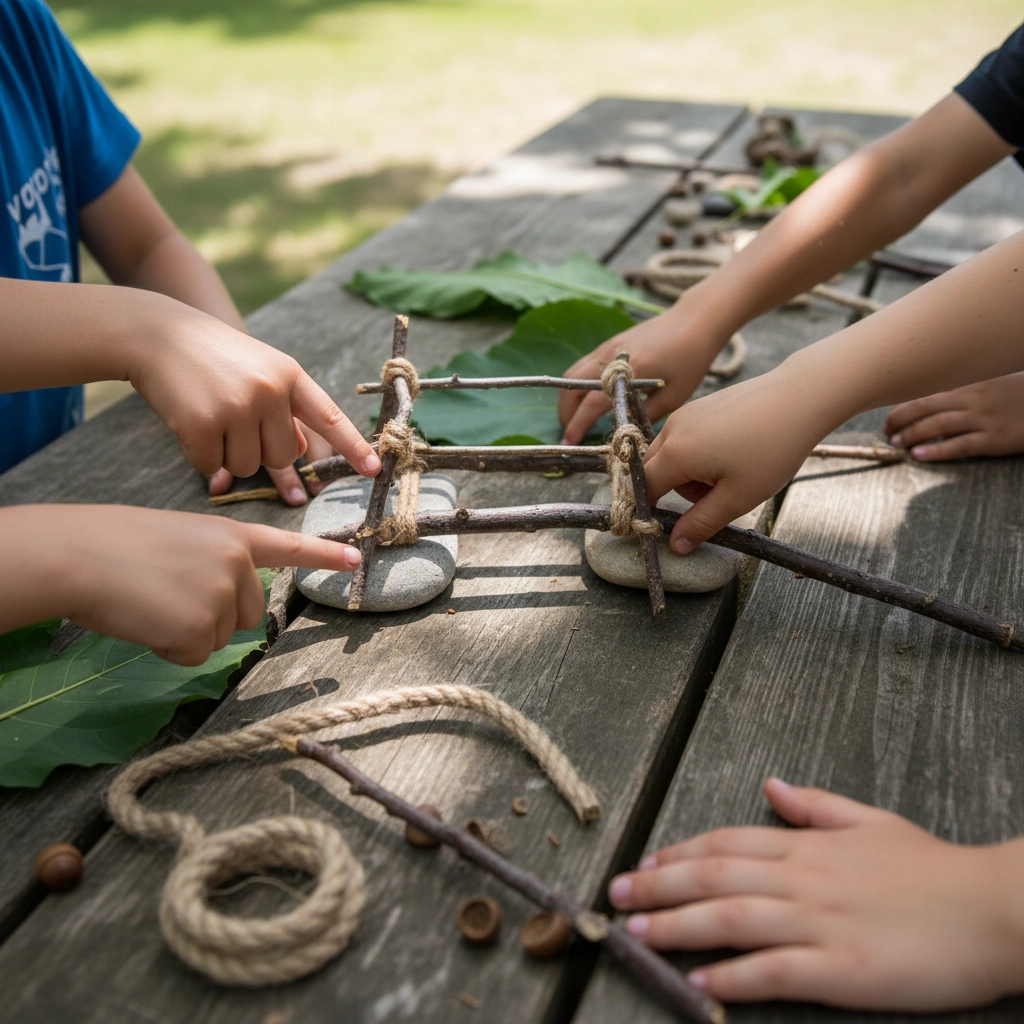
Building Tech-Fluent Problem Solvers
Here's the thing about these studies: they don't suggest we should fear technology. Instead, they highlight why camp's approach is so powerful. We want campers who are fluent in new technologies and have the independent problem-solving skills to use them effectively.
When a camper learns to troubleshoot a dead flashlight during a night hike, they're developing the same logical thinking skills they'll need to debug code or troubleshoot any future tech. When they figure out how to modify a game when someone gets hurt, they're practicing the adaptability they'll need in any career.
The Stanford voice study shows us that human connection literally shapes brain development. The Surrey sleep study reminds us that rest isn't just nice-to-have: it's essential for healthy neural growth. The AI classroom research proves that too much digital assistance can actually weaken problem-solving confidence.
Camp addresses all three: we provide rich human connection, we prioritize rest and rhythm, and we create daily challenges that require independent thinking.
Simple Changes With Big Impact
Want to lean into these findings this week? Try these small adjustments:
During problem-solving activities: Instead of jumping in with solutions, use your voice to guide thinking. "What do you notice about what's working?" or "What would happen if you tried the opposite approach?"
At bedtime: Those counselor voices during evening reflection aren't just tradition: they're brain development. Make sure every camper hears a human voice acknowledge something they accomplished that day.
During tech time (if you have it): Pair device use with verbal processing. After kids use tablets for weather research, have them explain their findings out loud to a buddy.
In staff training: Practice the art of asking questions instead of giving answers. It's harder but builds problem-solving confidence in both staff and campers.
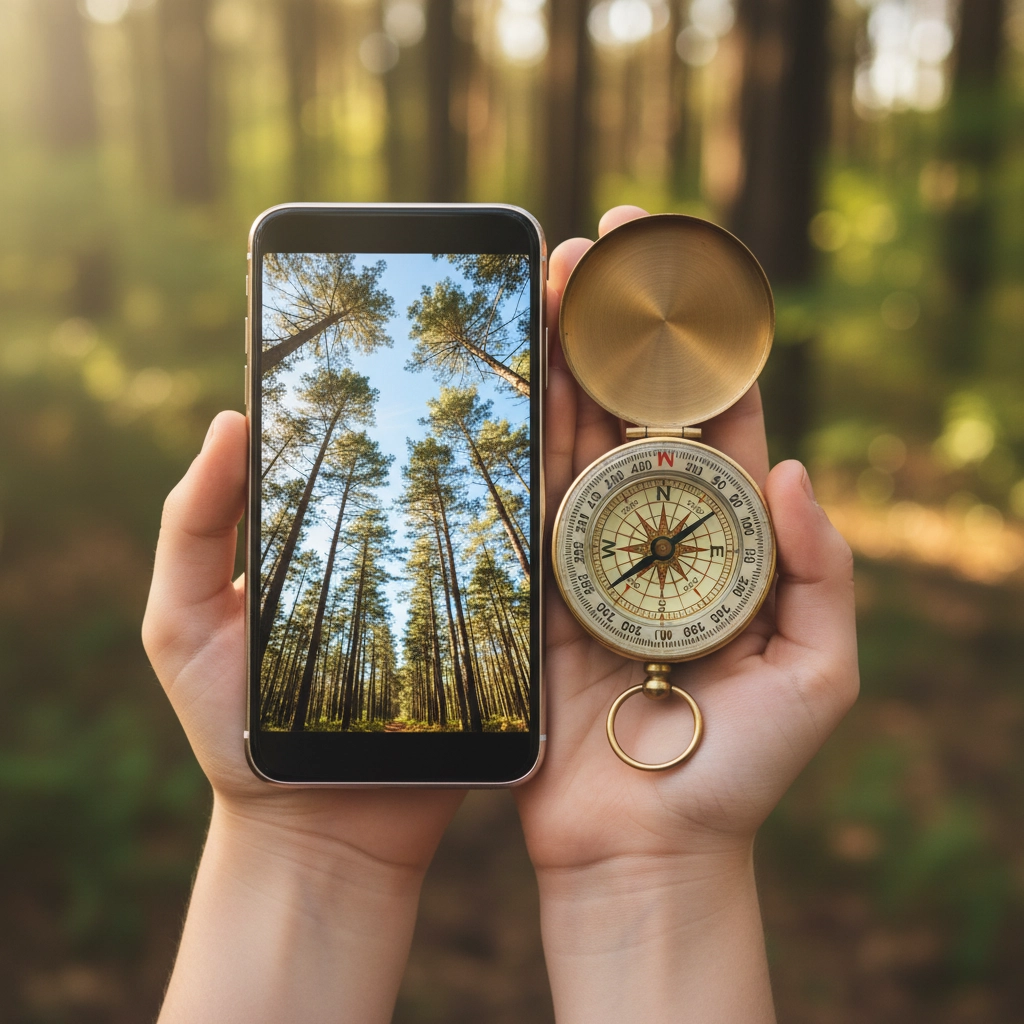
The Bigger Picture
All these studies: voices, sleep, AI overuse: tell the same story: the brain grows best through rhythm, rest, and relationship. In an era obsessed with optimization, camp remains one of the few places where growth is still felt, not downloaded.
When a counselor tells a story by flashlight or a cabin sings off-key under the stars, we're not just entertaining kids: we're wiring their social brains for empathy, language, and belonging. That's real neuroscience, wrapped in camp magic.
But it goes deeper than that. Every time we resist the urge to solve problems for our campers, every time we let them struggle productively with a challenge, we're building the exact skills that make people successful: creativity under constraints, collaboration through conflict, and confidence in their own thinking.
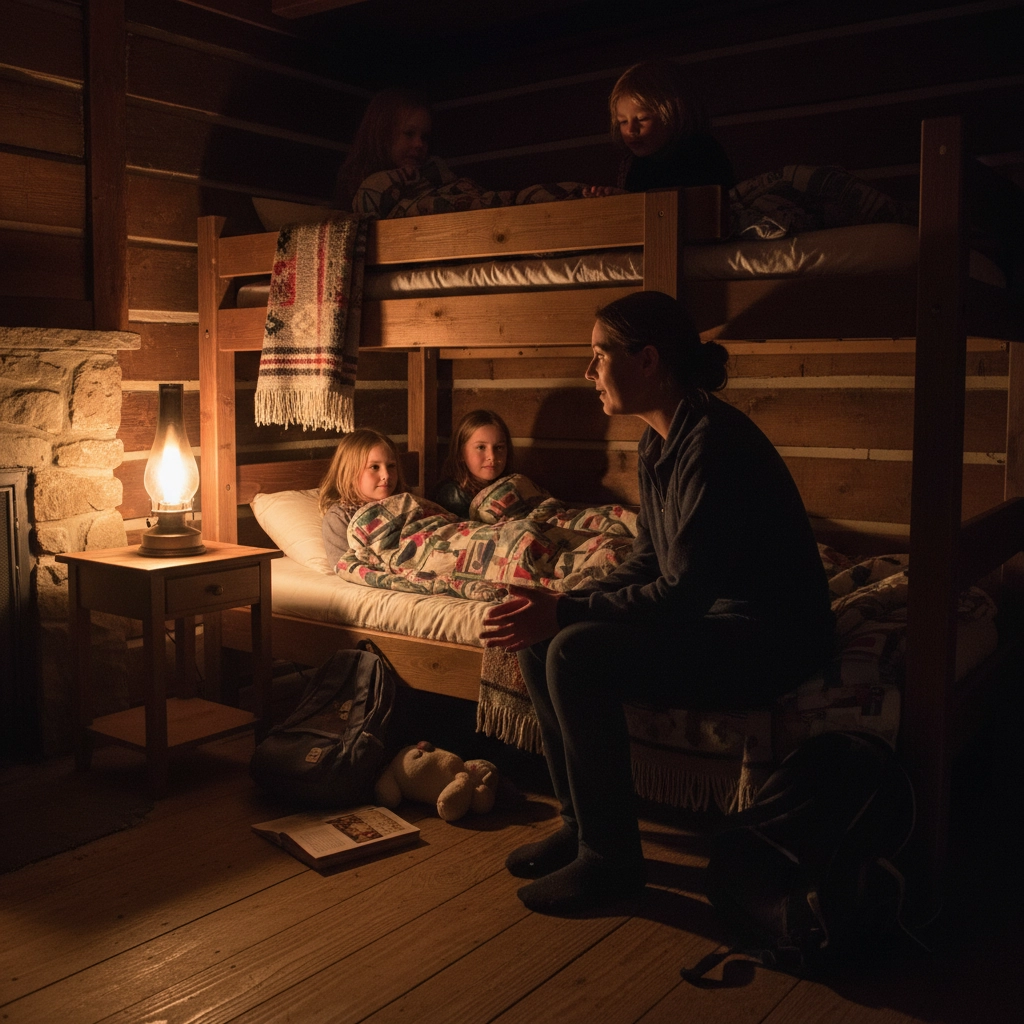
This Week's Challenge
So this week, celebrate every shouted "Good morning!" and every whispered "You've got this." Pay attention to moments when campers solve problems without immediately reaching for help: from untying a stubborn knot to working out a cabin disagreement.
Those human moments are doing the quiet developmental work no device can replicate. They're building brains that can think independently, work creatively, and connect authentically.
And in a world where AI can generate answers instantly, that's exactly what makes camp kids unstoppable.
Ready to dive deeper into camp leadership and child development? Follow @mattlovescamp on Instagram for daily insights, and join our community of camp professionals at www.ilove.camp where we're building the future of youth development, one conversation at a time.



Comments